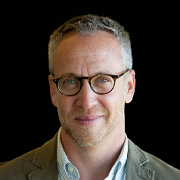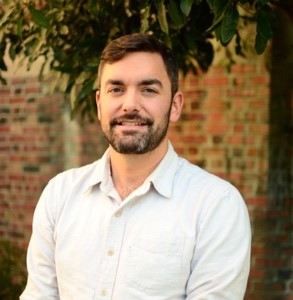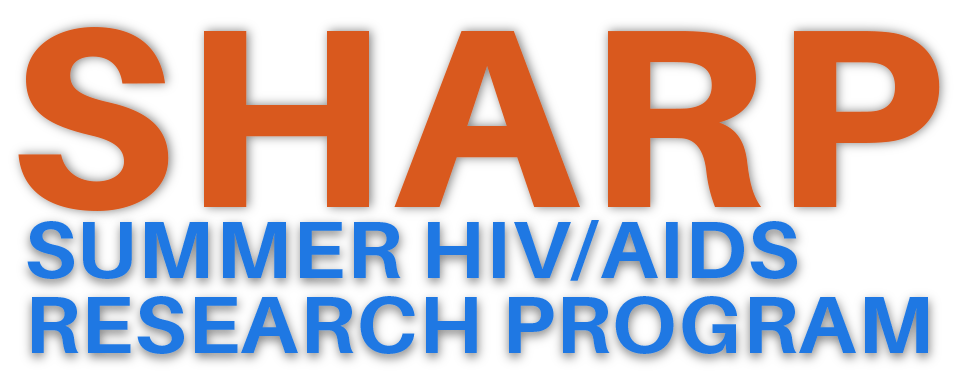MENTORS 2022
Each SHARP scholar is matched with a mentor team, with whom they work throughout the summer. These mentors provide guidance on the scholar’s project, serve as a sounding board for the scholar’s educational career and goals, and provide coaching on how to work in a public health research environment.

Elise Riley, MD, PhD, MPH Trained as an infectious disease epidemiologist, Dr. Riley is interested in how clinical, biological and behavioral factors converge to influence health. Her community-based research focuses on co-morbidities and competing risks in very low-income populations, with an emphasis on housing instability and associated conditions.
She works with a team of multidisciplinary investigators, residents, and postdoctoral fellows on a research program that includes “Polysubstance Use and Health Outcomes Evaluation” (PULSE). PULSE investigates the combined influences of HIV, co-infections and substance use (medications, legal drugs like alcohol and illegal drugs) on the cardiac health of unsheltered and unstably housed women. Her program also includes “Cocaine use, viral suppression and precursors of stroke in HIV infection” (CUPS). CUPS investigates the influence of stimulant use and factors specific to HIV on cerebrovascular health in women and men living with HIV. The aim of both studies is to provide clinical tools for risk assessment that reduce morbidity and mortality in high-risk populations.
The goal of Dr. Riley’s overall program is to inform health care delivery and prepare early-stage investigators for careers in patient-oriented health disparities research.
 Annesa Flentje, PhD is an Associate Professor at the University of California, San Francisco. Dr. Flentje’s research has targeted multiple ways to reduce health disparities among sexual and gender minority people including prevention, increasing visibility in research, understanding the biological mechanisms of minority stress, and developing interventions to reduce minority stress. Dr. Flentje was an inaugural recipient of the National Institutes of Health Sexual and Gender Minority Investigator Award in recognition of contributions to sexual and gender minority health research. Dr. Flentje is also Associate Director and UCSF Site Director of The PRIDE Study, a prospective national longitudinal study of the health of sexual and gender minority individuals within the United States that has enrolled over 23,000 sexual and gender minority people to date. Dr. Flentje is the Director of the Center for Sexual and Gender Minority Health at UCSF.
Annesa Flentje, PhD is an Associate Professor at the University of California, San Francisco. Dr. Flentje’s research has targeted multiple ways to reduce health disparities among sexual and gender minority people including prevention, increasing visibility in research, understanding the biological mechanisms of minority stress, and developing interventions to reduce minority stress. Dr. Flentje was an inaugural recipient of the National Institutes of Health Sexual and Gender Minority Investigator Award in recognition of contributions to sexual and gender minority health research. Dr. Flentje is also Associate Director and UCSF Site Director of The PRIDE Study, a prospective national longitudinal study of the health of sexual and gender minority individuals within the United States that has enrolled over 23,000 sexual and gender minority people to date. Dr. Flentje is the Director of the Center for Sexual and Gender Minority Health at UCSF. Kartika Palar, PhD is Associate Professor in the UCSF Division of HIV, Infectious Diseases and Global Medicine and Affiliate Faculty in the UCSF Center for Vulnerable Populations. Her research addresses the social and economic determinants of HIV, diabetes and other chronic disease outcomes in marginalized populations using both quantitative and qualitative methods, with a focus on food security intervention research. She is currently investigating the health impacts of medically tailored meals and groceries among individuals with type 2 diabetes, in collaboration with community nutrition agency Project Open Hand and funded by the NIH. Also with Project Open Hand, she co-led the Changing Health through Food Support pilot randomized trial (CHEFS-HIV) and the pilot pre-post CHEFS study among people with HIV. Building on this history of collaboration, they now working together to build capacity for equity-focused HIV research among nutrition agencies via an NIH Ending the HIV Epidemic supplement. At San Francisco General Hospital, she is helping launch a new acute care nutrition transitions program called Food Bridge to Health providing medically supportive nutrition to people with or at risk for food insecurity after hospital discharge. In addition to her US-based research, she has worked extensively in Latin America and the Caribbean (LAC) at the intersection of HIV and food insecurity in partnership with the UN World Food Program Regional Office (LAC), Ministries of Health, local universities, and local associations of people living with HIV. Building on pilot work in the Dominican Republic, she is investigating the health impacts of an urban gardening and peer nutritional counseling intervention (“PROMESA”) for people living with HIV and food insecurity. Dr. Palar is passionate about mentoring and about creating diverse, inclusive research teams. She has mentored three past SHARP scholars and loves the SHARP program!
Kartika Palar, PhD is Associate Professor in the UCSF Division of HIV, Infectious Diseases and Global Medicine and Affiliate Faculty in the UCSF Center for Vulnerable Populations. Her research addresses the social and economic determinants of HIV, diabetes and other chronic disease outcomes in marginalized populations using both quantitative and qualitative methods, with a focus on food security intervention research. She is currently investigating the health impacts of medically tailored meals and groceries among individuals with type 2 diabetes, in collaboration with community nutrition agency Project Open Hand and funded by the NIH. Also with Project Open Hand, she co-led the Changing Health through Food Support pilot randomized trial (CHEFS-HIV) and the pilot pre-post CHEFS study among people with HIV. Building on this history of collaboration, they now working together to build capacity for equity-focused HIV research among nutrition agencies via an NIH Ending the HIV Epidemic supplement. At San Francisco General Hospital, she is helping launch a new acute care nutrition transitions program called Food Bridge to Health providing medically supportive nutrition to people with or at risk for food insecurity after hospital discharge. In addition to her US-based research, she has worked extensively in Latin America and the Caribbean (LAC) at the intersection of HIV and food insecurity in partnership with the UN World Food Program Regional Office (LAC), Ministries of Health, local universities, and local associations of people living with HIV. Building on pilot work in the Dominican Republic, she is investigating the health impacts of an urban gardening and peer nutritional counseling intervention (“PROMESA”) for people living with HIV and food insecurity. Dr. Palar is passionate about mentoring and about creating diverse, inclusive research teams. She has mentored three past SHARP scholars and loves the SHARP program!  Jessica Bloome, MD, MPH is an Assistant Professor of Medicine at UCSF and the Deputy Director for the CDC-funded Capacity Building Assistance program for High-Impact HIV Prevention Capacity Building Assistance (CBA) at the SFDPH Center for Learning & Innovation (getSFcba). She provides medical care for people living with HIV and people seeking HIV prevention services at the San Francisco General Hospital (SFGH) Ward 86 clinic, and addiction care at the SFGH Bridge Clinic.
Jessica Bloome, MD, MPH is an Assistant Professor of Medicine at UCSF and the Deputy Director for the CDC-funded Capacity Building Assistance program for High-Impact HIV Prevention Capacity Building Assistance (CBA) at the SFDPH Center for Learning & Innovation (getSFcba). She provides medical care for people living with HIV and people seeking HIV prevention services at the San Francisco General Hospital (SFGH) Ward 86 clinic, and addiction care at the SFGH Bridge Clinic. Jonathan Fuchs, MD, MPH is the Director of the Center for Learning & Innovation at the SFDPH and joint PI of SHARP. He is a Clinical Professor of Medicine at UCSF, and Co-Director of the NIAID-funded UCSF Bay Area CFAR Mentoring Program, which hosts the annual Mentoring the Mentors of Diversity workshop. After completing his MD degree at Rutgers University and his MPH degree at the Mailman School of Public Health at Columbia University, Dr. Fuchs completed internal medicine residency training at UCSF. As an investigator affiliated with the NIAID- and NIDA-funded HIV Vaccine and HIV Prevention Trials Networks (HVTN, HPTN) his research has focused on the evaluation of experimental preventive HIV vaccine candidates in early and late-stage testing, social and behavioral issues relevant to HIV vaccine trial implementation, the evaluation of STI interventions to prevent HIV acquisition, and the assessment of mobile health interventions to improve adherence to PrEP. As the Director of the HVTN Training and Education Committee, he led several early stage investigator (ESI) programs including the Research and Mentorship Program (RAMP) which aims to attract African American and Latino medical students to careers in HIV vaccine discovery through an eight to 16 week or year-long mentored research project and a Non-Human Primate (NHP) Early Stage Investigator Award which sought post-doctoral and junior faculty to conduct translational research intending to bridge the gap between HIV clinical and NHP science. Dr. Fuchs also worked in partnership with AVAC to create an online curriculum focused on stakeholder engagement in biomedical HIV prevention trials based on the Good Participatory Practice guidelines. During the COVID-19 pandemic, Dr. Fuchs led San Francisco’s hotel-based isolation and quarantine program for people experiencing homelessness, which offered a wide range of harm reduction services, COVID-19 testing, and a network of hyperlocal neighborhood vaccine sites. Throughout the COVID response, Dr. Fuchs mentored undergraduates from San Francisco State University as COVID vaccine ambassadors.
Jonathan Fuchs, MD, MPH is the Director of the Center for Learning & Innovation at the SFDPH and joint PI of SHARP. He is a Clinical Professor of Medicine at UCSF, and Co-Director of the NIAID-funded UCSF Bay Area CFAR Mentoring Program, which hosts the annual Mentoring the Mentors of Diversity workshop. After completing his MD degree at Rutgers University and his MPH degree at the Mailman School of Public Health at Columbia University, Dr. Fuchs completed internal medicine residency training at UCSF. As an investigator affiliated with the NIAID- and NIDA-funded HIV Vaccine and HIV Prevention Trials Networks (HVTN, HPTN) his research has focused on the evaluation of experimental preventive HIV vaccine candidates in early and late-stage testing, social and behavioral issues relevant to HIV vaccine trial implementation, the evaluation of STI interventions to prevent HIV acquisition, and the assessment of mobile health interventions to improve adherence to PrEP. As the Director of the HVTN Training and Education Committee, he led several early stage investigator (ESI) programs including the Research and Mentorship Program (RAMP) which aims to attract African American and Latino medical students to careers in HIV vaccine discovery through an eight to 16 week or year-long mentored research project and a Non-Human Primate (NHP) Early Stage Investigator Award which sought post-doctoral and junior faculty to conduct translational research intending to bridge the gap between HIV clinical and NHP science. Dr. Fuchs also worked in partnership with AVAC to create an online curriculum focused on stakeholder engagement in biomedical HIV prevention trials based on the Good Participatory Practice guidelines. During the COVID-19 pandemic, Dr. Fuchs led San Francisco’s hotel-based isolation and quarantine program for people experiencing homelessness, which offered a wide range of harm reduction services, COVID-19 testing, and a network of hyperlocal neighborhood vaccine sites. Throughout the COVID response, Dr. Fuchs mentored undergraduates from San Francisco State University as COVID vaccine ambassadors. Pamela Murnane, PhD is an Assistant Professor in the department of Epidemiology & Biostatistics at UCSF. Her research focusses on biological, behavioral, and structural factors that influence maternal and child health outcomes in the context of HIV in resource limited settings. She has expertise in adherence measurement and risk prediction, and is currently the PI of a K01 Award aiming to identify implementation strategies to deliver targeted adherence support for pregnant and postpartum women living with HIV in western Kenya.
Pamela Murnane, PhD is an Assistant Professor in the department of Epidemiology & Biostatistics at UCSF. Her research focusses on biological, behavioral, and structural factors that influence maternal and child health outcomes in the context of HIV in resource limited settings. She has expertise in adherence measurement and risk prediction, and is currently the PI of a K01 Award aiming to identify implementation strategies to deliver targeted adherence support for pregnant and postpartum women living with HIV in western Kenya. John A. Sauceda, PhD, MSc is Multiple Principal Investigator (MPI) of SHARP, Associate Professor in Residence, and a health psychologist in the Department of Medicine at UCSF. He also co-directs the UCSF Center for AIDS Research (CFAR) Mentoring Program, the CFAR Scholars DEI Pathway Initiative, and is Co-Director of the Developmental Core at the NIMH-funded Center for AIDS Prevention Studies (CAPS). John’s primary line of research aims to understand and intervene on factors to address health disparities among Latinx communities and vulnerable communities impacted by HIV. He is MPI of two clinical trials testing multiple component interventions to support viral suppression among people who inject drugs in Mexico and an economic empowerment intervention for adolescents living with HIV in Uganda. He also has a second line of research to conduct social and behavioral science research to help address some unresolved challenges in HIV cure research, such as promoting consent understanding, measuring psychological experiences of participants going through risky HIV cure trials, and understanding the perspectives, priorities and concerns of people living with HIV who may be interested in participating in HIV cure research.
John A. Sauceda, PhD, MSc is Multiple Principal Investigator (MPI) of SHARP, Associate Professor in Residence, and a health psychologist in the Department of Medicine at UCSF. He also co-directs the UCSF Center for AIDS Research (CFAR) Mentoring Program, the CFAR Scholars DEI Pathway Initiative, and is Co-Director of the Developmental Core at the NIMH-funded Center for AIDS Prevention Studies (CAPS). John’s primary line of research aims to understand and intervene on factors to address health disparities among Latinx communities and vulnerable communities impacted by HIV. He is MPI of two clinical trials testing multiple component interventions to support viral suppression among people who inject drugs in Mexico and an economic empowerment intervention for adolescents living with HIV in Uganda. He also has a second line of research to conduct social and behavioral science research to help address some unresolved challenges in HIV cure research, such as promoting consent understanding, measuring psychological experiences of participants going through risky HIV cure trials, and understanding the perspectives, priorities and concerns of people living with HIV who may be interested in participating in HIV cure research. Natasha Ludwig-Barron, PhD, MPH, is a Chicana Epidemiologist and TAPS Fellow at UC San Francisco, Department of Medicine, with more than 15-years of public health research and practice experience. She applies mixed methods and ecological approaches to understanding the syndemic of HIV/AIDS, substance use, and gender inequity, with the goal of improving the health and wellbeing of marginalized communities in the US (Los Angeles, Atlanta, San Diego, Seattle), Mexico and Kenya. After earning her MPH at Emory University, Dr. Ludwig-Barron completed a Hispanic-Serving Health Professions Schools (HSHPS) Fellowship where she conducted HIV and substance use research along the U.S.-Mexico Border in San Diego, CA, and later served as an Epidemiologist with the Los Angeles County Department of Public Health, Division of HIV and STD Programs, Research and Innovation Unit. She completed her doctorate in Epidemiology at the University of Washington, which was funded through a NIDA Diversity Supplement, and largely focused on HIV-HCV risk environments and predictors of suboptimal HIV care among sub-groups of persons who inject drugs living with HIV (PWID-LH) in Kenya. In addition, Dr. Ludwig-Barron collaborated with the University of Washington Latino Center for Health to complete a statewide policy initiative that highlighted the Latinx physician shortage using geospatial analysis, which was instrumental in capacity building and increasing funding for pathway programs. At UC San Francisco, Dr. Ludwig-Barron will collaborate with a binational, bicultural and bilingual research team at UCSF, University of Texas-El Paso, and Compañeros, a harm reduction organization based in Ciudad Juárez. She will apply an ecological approach to investigating HIV and substance use along the US-Mexico Border by conducting geospatial analysis, hierarchical cluster analysis and assessing ethical research questions within underserved communities. In addition, Dr. Ludwig-Barron is a lifelong advocate of JEDI programs like SHARP that support the next generation of Latinx and underrepresented groups in higher education, medicine and research.
Natasha Ludwig-Barron, PhD, MPH, is a Chicana Epidemiologist and TAPS Fellow at UC San Francisco, Department of Medicine, with more than 15-years of public health research and practice experience. She applies mixed methods and ecological approaches to understanding the syndemic of HIV/AIDS, substance use, and gender inequity, with the goal of improving the health and wellbeing of marginalized communities in the US (Los Angeles, Atlanta, San Diego, Seattle), Mexico and Kenya. After earning her MPH at Emory University, Dr. Ludwig-Barron completed a Hispanic-Serving Health Professions Schools (HSHPS) Fellowship where she conducted HIV and substance use research along the U.S.-Mexico Border in San Diego, CA, and later served as an Epidemiologist with the Los Angeles County Department of Public Health, Division of HIV and STD Programs, Research and Innovation Unit. She completed her doctorate in Epidemiology at the University of Washington, which was funded through a NIDA Diversity Supplement, and largely focused on HIV-HCV risk environments and predictors of suboptimal HIV care among sub-groups of persons who inject drugs living with HIV (PWID-LH) in Kenya. In addition, Dr. Ludwig-Barron collaborated with the University of Washington Latino Center for Health to complete a statewide policy initiative that highlighted the Latinx physician shortage using geospatial analysis, which was instrumental in capacity building and increasing funding for pathway programs. At UC San Francisco, Dr. Ludwig-Barron will collaborate with a binational, bicultural and bilingual research team at UCSF, University of Texas-El Paso, and Compañeros, a harm reduction organization based in Ciudad Juárez. She will apply an ecological approach to investigating HIV and substance use along the US-Mexico Border by conducting geospatial analysis, hierarchical cluster analysis and assessing ethical research questions within underserved communities. In addition, Dr. Ludwig-Barron is a lifelong advocate of JEDI programs like SHARP that support the next generation of Latinx and underrepresented groups in higher education, medicine and research.
 Paul Wesson, PhD is an epidemiologist focused on quantifying the health burdens of hard-to-reach and socially marginalized populations (e.g., men who have sex with men, female sex workers, people who inject drugs, criminal justice involved populations). His research agenda relates to the unique challenges of sampling these hard-to-reach populations and leverages information from the sampling process (and survey data) to generate estimates of the population size in addition to collecting data from populations that have historically been understudied. In parallel, he has implemented rigorous epidemiological and statistical methods to quantify the social determinants of infectious disease risk. Dr Paul’s PhD dissertation at the University of California, Berkeley focused on methods for population size estimation. As a postdoctoral fellow at the University of California, San Francisco (UCSF), he developed two novel methods for population size estimation. Both methods account for selection biases that may result from different sources of data and adjusts estimates accordingly. Also, as a postdoctoral fellow, he applied rigorous causal inference statistical methods and item response theory (measurement design and analysis) methods to research the social determinants of HIV infection in a cohort of adolescent girls in South Africa (HIV Prevention Trials Network [HPTN] 068). Currently, as an Assistant Professor of Epidemiology and Biostatistics, he is the PI of a NIAID-funded K01 award focused on social and racial disparities in HIV in urban settings (Fast Track cities), adopting methods from machine learning, phylogenetics, and social epidemiology. Previously, Dr Paul received funding through an NIMH administrative
supplement to study quantitative intersectionality methods as a tool to identify the most vulnerable populations in need of targeted HIV-related services. In addition to his international work, he also has substantial experience studying health inequalities in the San Francisco Bay Area, including doing COVID-19 pandemic-related work with Latinx communities.
Paul Wesson, PhD is an epidemiologist focused on quantifying the health burdens of hard-to-reach and socially marginalized populations (e.g., men who have sex with men, female sex workers, people who inject drugs, criminal justice involved populations). His research agenda relates to the unique challenges of sampling these hard-to-reach populations and leverages information from the sampling process (and survey data) to generate estimates of the population size in addition to collecting data from populations that have historically been understudied. In parallel, he has implemented rigorous epidemiological and statistical methods to quantify the social determinants of infectious disease risk. Dr Paul’s PhD dissertation at the University of California, Berkeley focused on methods for population size estimation. As a postdoctoral fellow at the University of California, San Francisco (UCSF), he developed two novel methods for population size estimation. Both methods account for selection biases that may result from different sources of data and adjusts estimates accordingly. Also, as a postdoctoral fellow, he applied rigorous causal inference statistical methods and item response theory (measurement design and analysis) methods to research the social determinants of HIV infection in a cohort of adolescent girls in South Africa (HIV Prevention Trials Network [HPTN] 068). Currently, as an Assistant Professor of Epidemiology and Biostatistics, he is the PI of a NIAID-funded K01 award focused on social and racial disparities in HIV in urban settings (Fast Track cities), adopting methods from machine learning, phylogenetics, and social epidemiology. Previously, Dr Paul received funding through an NIMH administrative
supplement to study quantitative intersectionality methods as a tool to identify the most vulnerable populations in need of targeted HIV-related services. In addition to his international work, he also has substantial experience studying health inequalities in the San Francisco Bay Area, including doing COVID-19 pandemic-related work with Latinx communities. Angelo “Asa” Clemenzi-Allen, MD is Director of the HIV and Integrate Services, which includes the Ryan White Center of Excellence and HIV prevention services at the San Francisco Department of Public Health. For over 20 years, the clinical program had served people living with HIV who are incarcerated in San Francisco County jails, a population consisting of approximately 300-350 individuals annually. Additionally, Dr Clemenzi-Allen is an Assistant Clinical Professor of Medicine (Volunteer) within the Division of HIV, Infectious Diseases and Global Medicine at the San Francisco General Hospital. Within both of these clinical roles, Dr Clemenzi-Allen focuses on implementation research that aims to evaluate low-barrier, multi-component interventions that improve care cascade outcomes for people experiencing homelessness and criminally justice involved people living with HIV.
Angelo “Asa” Clemenzi-Allen, MD is Director of the HIV and Integrate Services, which includes the Ryan White Center of Excellence and HIV prevention services at the San Francisco Department of Public Health. For over 20 years, the clinical program had served people living with HIV who are incarcerated in San Francisco County jails, a population consisting of approximately 300-350 individuals annually. Additionally, Dr Clemenzi-Allen is an Assistant Clinical Professor of Medicine (Volunteer) within the Division of HIV, Infectious Diseases and Global Medicine at the San Francisco General Hospital. Within both of these clinical roles, Dr Clemenzi-Allen focuses on implementation research that aims to evaluate low-barrier, multi-component interventions that improve care cascade outcomes for people experiencing homelessness and criminally justice involved people living with HIV.